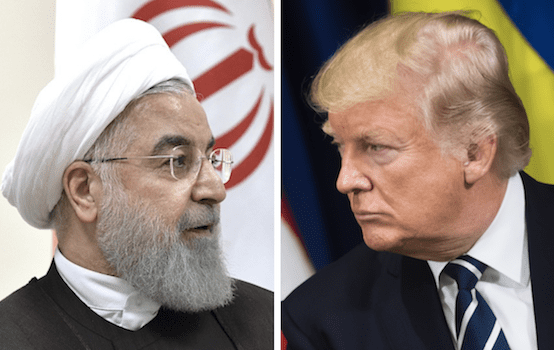The Total Failure of Trump’s Iran Policy

Paul Pillar joins in demolishing the awful Stephens column on Iran and the nuclear deal. Here he points out that any additional strain placed on Iranian proxies by U.S. sanctions has not changed Iran’s policies or the proxies’ activities:
Most of Hubbard’s article—the part Stephens doesn’t mention—describes how and why Iran and its clients are not changing their policies and operations despite the financial pinch. The reporter notes that the client groups “are relatively inexpensive, remain ideologically committed to Iran’s agenda and can promote it through local politics in ways that the United States struggles to thwart.”
Far from supporting Stephens’ case that reneging on the nuclear deal has been good for the U.S., the evidence proves just the opposite. The attempt to force Iran into abandoning its proxies and its policies in the region has failed, but it has cost the U.S. significantly in damaged relations with allies and international isolation. It is very unlikely that the U.S. can pressure Iran into giving up what its political and military leaders believe to be important security interests. Indeed, defining those security interests as “unacceptable behavior” tells the world that the Trump administration seeks regime change:
When you define their security interests as unacceptable, you give away that your goal is nothing short of regime change https://t.co/2u7OXMoksh
— Daniel Larison (@DanielLarison) April 1, 2019
Pillar makes a similar point:
Iran’s activity in the region is shaped not by the money, but instead by Tehran’s perception of what is in Iran’s security interests.
Iran hawks seem to be incapable of acknowledging those interests as anything other than “malign” behavior to be countered, and so they repeatedly fail to understand why Iran does what it does. By putting the regime under more intense economic pressure, the administration just convinces hard-liners in Iran that they should cling to their current policies more tightly than ever. If we were in their position, we would likely respond to hostility from a foreign power in a similar fashion. Just as Iran hawks overrated the importance of the imaginary “windfall” on Iran’s activities in the region, they overrate the effect of a reduction in funding for proxies. Iran hawks failed to acknowledge that Iran was genuinely changing its behavior as a result of the nuclear deal they hate, and they now ignore that Iran isn’t changing its behavior in response to sanctions. They keep getting things wrong because they have an inveterate, ideological antipathy for Iran that cannot accept that Iran has some legitimate interests and they can’t grasp that their government can sometimes respond to positive incentives to change behavior.
Pillar continues:
None of this should be surprising. Hubbard notes that “recent history suggests that financial pressure on Iran does not necessarily lead to military cutbacks.” As multiple independent studies have concluded, that also is true of the recent and not-so-recent history of Iran’s overall activity in the Middle East, including activity that the United States finds objectionable.
This is yet another reminder that sanctions rarely change regime behavior, especially when that behavior is related to the regime’s perceived security interests. The main effect that sanctions has is to inflict pain and suffering on the civilian population, but impoverishing ordinary Iranians doesn’t serve American interests and achieves nothing except to shore up the regime and allow hard-liners to tighten their hold on power. In every respect, the administration’s Iran policy is a failure, and that means that Iranians are being made to suffer for nothing.
Comments